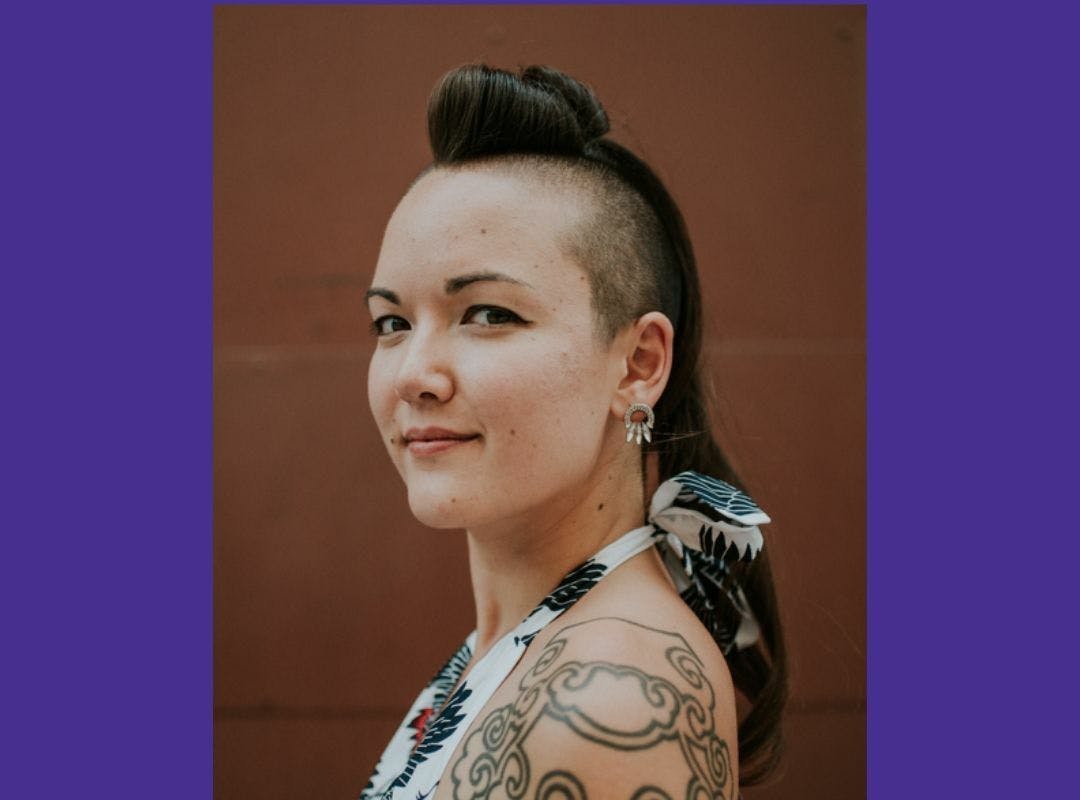When you're seen as a racial puzzle to be solved
Dispatches from the frontlines of biracial identity

This story is part of a series of stories that explore biracial identity. We encourage you to listen to the short audio pieces, each roughly 3-4 minutes long.
Listen to Whitney Yang's story:
It’s my 29th birthday weekend. My partner
Andrew and I are finishing up eating a meal at this funky vegan place in
Tucson. One of those seasonal, farm-to-table places where the menu changes
daily based on the produce they get in. Andrew goes to the bathroom and I stand
up to walk around and look at all of this intergalactic artwork on the walls.
We’re on holiday and I’m in one of those carefree moods where I feel like
nothing would be better than spending my morning looking at weird art.
There’s an older white woman sitting at a table behind me - she’s the only
other customer in the restaurant. As I look at the artwork, she begins talking
to me and we get to chatting. She asks what I do, and I tell her about my
graduate studies in Phoenix, that my research focus is race and media
representation. She pauses before replying, “But you’re just a plain old white
girl, aren’t you?”
I clench my teeth. It helps that she’s old and crotchety. I smile. I tell her,
“Actually, I’m half Chinese.”
Then, she does something no one has ever done before in my exactly 29 years of
being a racially ambiguous puzzle for people to solve. She vigorously pushes
her chair back from her table and stands up to move towards me. She comes
within a few inches of my face. She stops at the end of my nose, and removes
her glasses. She quite literally inspects me.
I feel my cheeks flushing hot. I want to say to her, “GET OUT OF MY FACE” - but
I don’t. I stand in shock, and the few seconds are over.
Satisfied, I assume, that my ethnic make up is in fact what I say it is — she
sits back down, and offers up a pearl of wisdom: “Well, that’s alright, people
just think you Chinese are smart!”
I am at a loss for words or forced smiles.
Just then, Andrew returns from the bathroom, and I tell him that we need to
leave, now.
Something about this encounter is particularly upsetting to me. I keep
remembering how close she got to my face, and thinking about how entitled she
must have felt, and how belittled I felt in return.
I even tell my mother about it. I think, maybe telling her will help her
understand me, somehow, if I share a moment of vulnerability.
I tell her. And she laughs! She guffaws.
I explain, “It’s not funny.” “It pissed me off.” “That woman didn’t have the
right to get in my face like that.”
My mother looks at me, recovering from her laughter, with unfeeling eyes. I sit
in my quiet disappointment as she changes the topic of conversation. A
different version of the rage I felt in Tucson resurfaces in my chest, my
throat, my cheeks. This time, it is sadness, heartbreak, and rejection.
Your stories: Dispatches from the frontlines of biracial identity
- Even my closest friends can't see the world the way I do by Quinn Murphy
Get Insights In your Inbox
Join our community and receive updates about our latest offerings - resources, events, learning groups, and news about all matters race and kids in the US.
Subscribe


